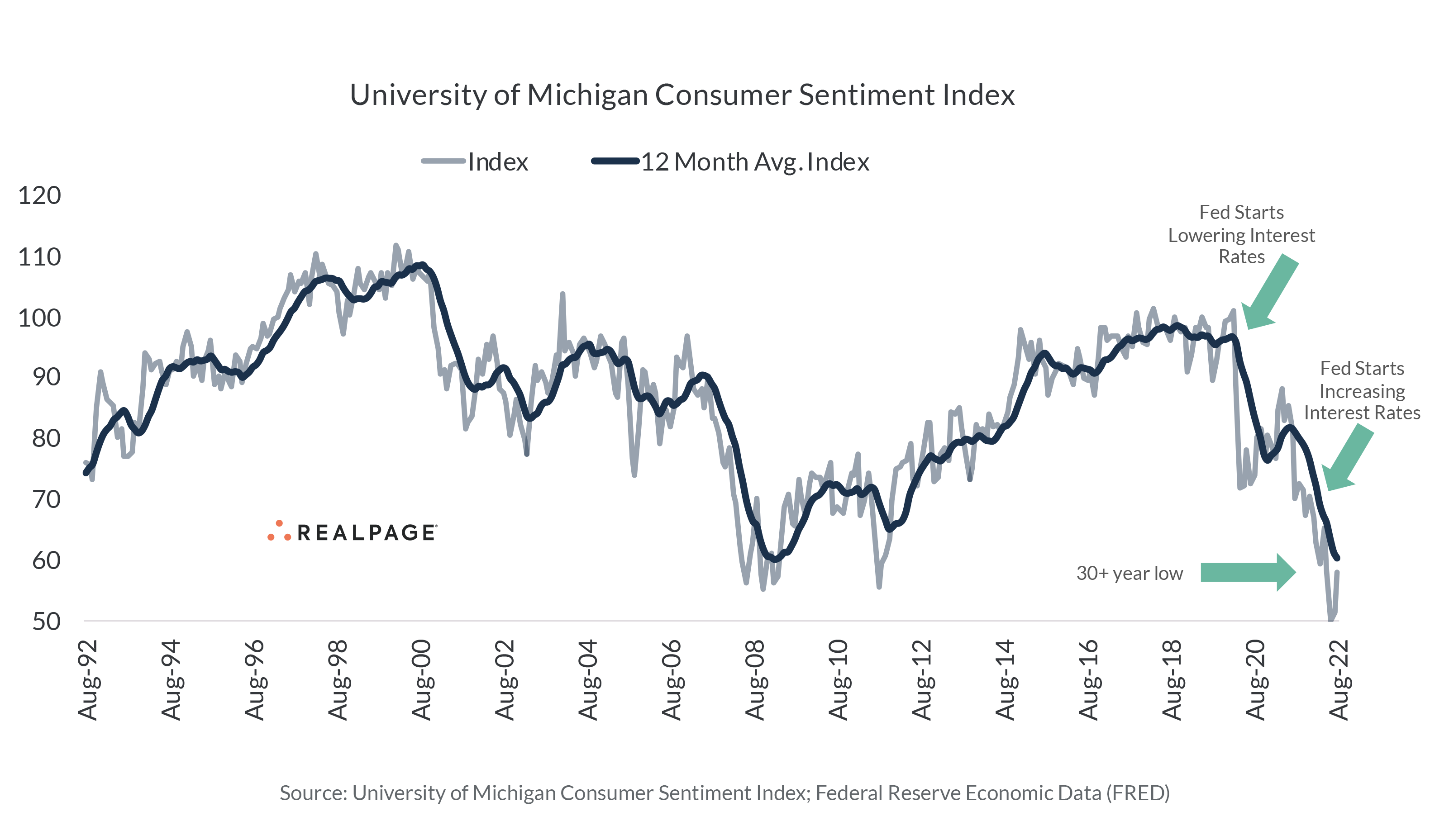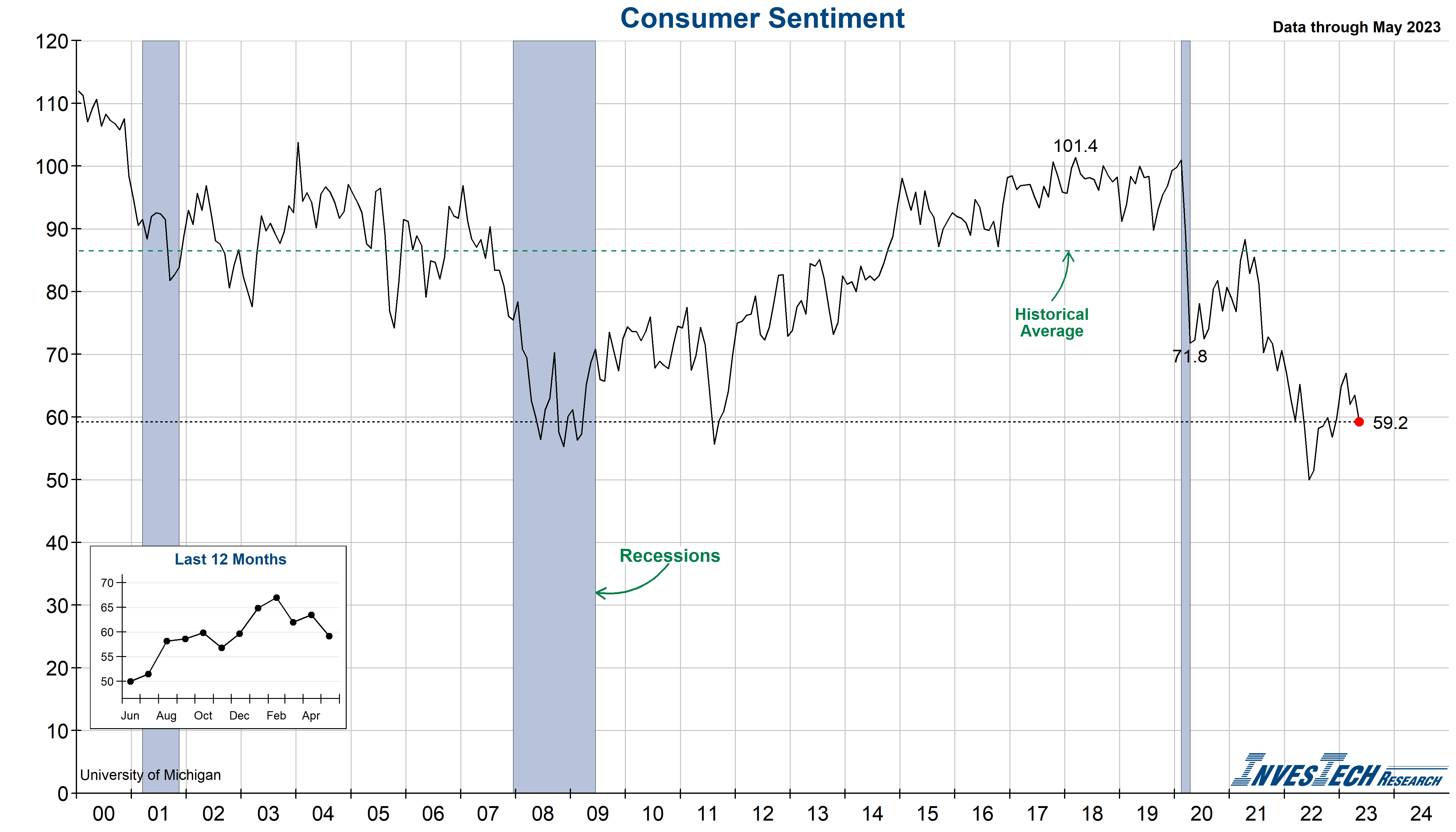Table of Contents
- What Is Consumer Confidence and Consumer Sentiment? | Britannica Money
- Consumer sentiment inches lower for April: UMich survey
- U.S. Consumer Sentiment Improves More Than Expected In November
- Consumer Sentiment Plunges After a Tumultuous Time | RealPage Analytics ...
- October US consumer sentiment index
- Consumer sentiment takes a dive - Appliance Retailer
- University of Michigan Consumer Sentiment - InvesTech Research
- Consumer Sentiment
- Consumer Sentiment
- U.S. Consumer Sentiment Soars To Nearly Two-Year High In July



Tariffs: A Major Concern for Consumers


The impact of tariffs on consumer sentiment is evident from the survey results. The University of Michigan's consumer sentiment survey found that 35% of respondents mentioned tariffs as a concern, up from 21% in the previous month. This increase in concern about tariffs is a clear indication that consumers are worried about the impact of trade policies on their wallets.

Inflation Fears: Another Major Concern


The inflation fears are not unfounded, as the data suggests that prices are indeed rising. The Consumer Price Index (CPI) has been trending upwards, with a 2.3% increase in the past 12 months. This rise in prices has reduced the purchasing power of consumers, making them more cautious about their spending. The survey found that 55% of respondents reported that their incomes had not kept pace with inflation, leading to a decline in their standard of living.

Implications for the US Economy
The decline in consumer sentiment has significant implications for the US economy. Consumer spending accounts for approximately 70% of the US GDP, and a decline in consumer confidence can lead to a reduction in spending. This reduction in spending can have a ripple effect on the economy, leading to slower economic growth and potentially even a recession.The decline in consumer sentiment also has implications for businesses, as they may need to adjust their pricing strategies and production levels in response to changing consumer behavior. The survey found that 45% of respondents expected their financial situation to worsen in the next year, up from 35% in the previous month. This increase in pessimism about their financial situation is a clear indication that consumers are preparing for tougher times ahead.
In conclusion, the US consumer sentiment has taken a significant hit due to fears of tariffs and inflation. The decline in consumer confidence has significant implications for the US economy, and it is essential for policymakers to take note of these concerns. The government needs to work towards resolving the trade tensions and addressing the concerns of consumers to restore their confidence. By doing so, the US economy can continue to grow, and consumers can enjoy a higher standard of living.As the US economy continues to evolve, it is essential to monitor consumer sentiment closely. The University of Michigan's consumer sentiment survey provides valuable insights into the concerns and expectations of consumers, and policymakers would do well to take note of these trends. By understanding the underlying factors driving consumer sentiment, policymakers can develop effective strategies to address these concerns and promote economic growth.